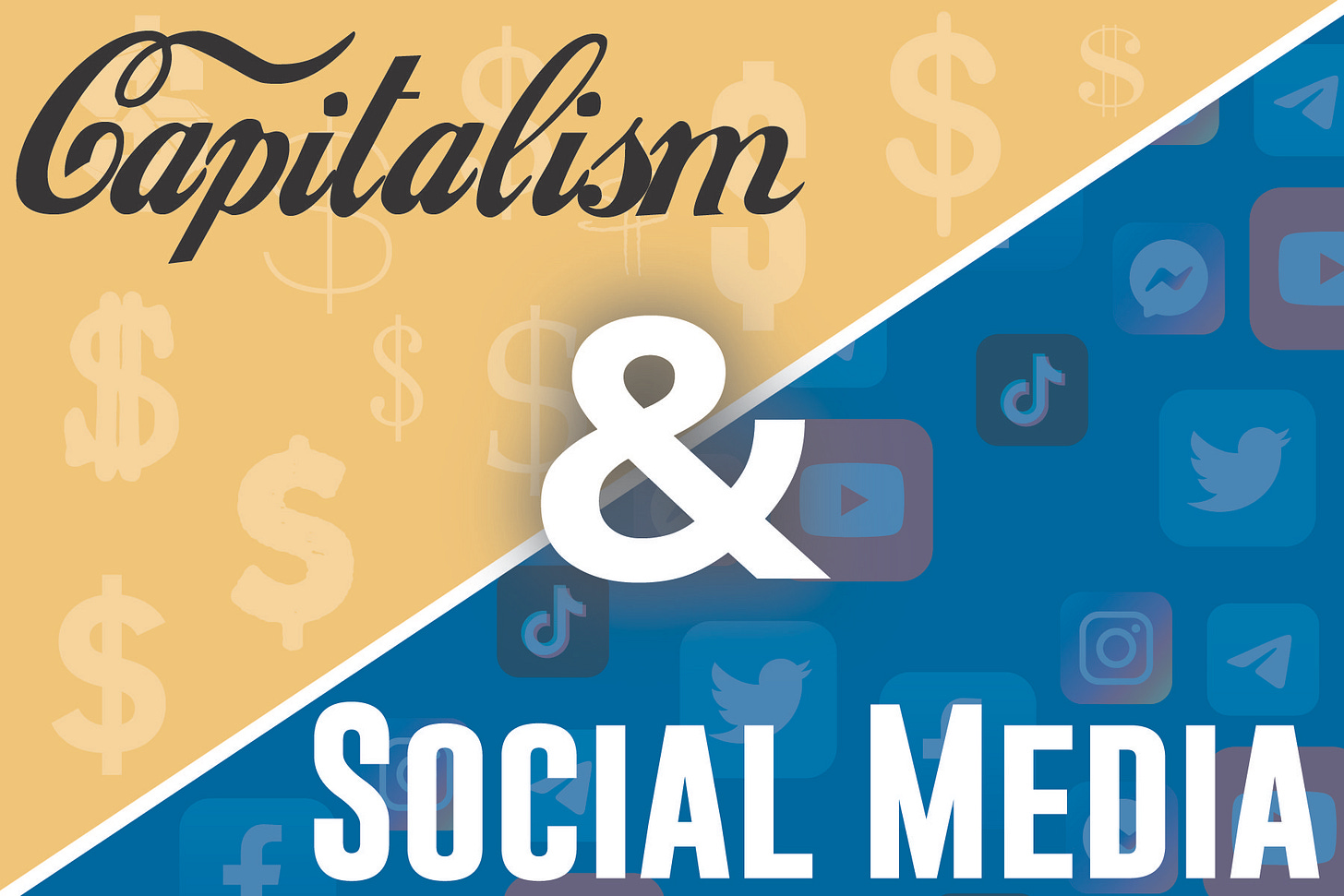Capitalism & Social Media
Stacking the bricks and linking the circles
I am not a social media expert; in fact, I am not very tech savvy at all. Most of it scares me. Recently I ran for congress and realized how important social media is when trying to communicate with a large portion of the population. Since then, I have been paying closer attention and it seems to me that social media functions like capitalism. It’s all about stacking the bricks and linking the circles. In capitalism, you stack capital and link customer circles, in social media, you stack content and link friend circles.
In capitalism, if you wanted to become a captain of industry you could bring something completely new to the market or you could build a small business around a basic need in the market. Once the small business is established and operating a profit, the owner starts another business that helps feed his first business. Stacking the bricks is accumulating more capital and linking the circles is sharing the two businesses’ customer base to grow a larger circle. Stacking capital from two businesses instead of one allows for savings to build faster and larger. If a business owner can successfully run two businesses long enough to raise capital for a third, this is where he could stand to profit a great deal. The circles joined together to provide a large enough circle for someone to pass from one class to the next. In most cases, this is middle to upper. Building and saving could take years though. What if you wanted a short cut?
When starting a small business one of the first things you want to do is build a circle of like-minded businesses to pass clientele. Most startup businesses join networking groups to grow their circles. If a business owner could build a strong enough relationship with one of them, they could start a partnership. This allows the linking of the circles and stacking of bricks to accelerate by sharing the responsibility. If a business has an advantage in capital, this formula becomes easier, but for a small business trying to pay the mortgage and feed their family, this formula is survival. Capital can grow faster and larger, they can use its buying power to undercut small businesses. So, how does a small business compete in a rigged system?
That’s the beauty of capitalism! It functions like nature and the market rewards good ideas and hard work. The most adaptable survive, the system will balance itself, it cannot be rigged only manipulated (advertising) and controlled (regulation). While capital focuses on quantity, small business focuses on quality. While capital focuses on lower cost; small business focuses on customer service. When capital is focused on the next customer, small business is focused on the next relationship. While capital wants your information, small business wants to inform you. When capital is focused on growing an empire, small business is focused on growing a community. If a small business is hungry enough and full of ideas, if they work hard enough and give the people something of value, then like David, they can slay Goliath. “Ambition must be made to counteract ambition.”
If you are an independent thinker trying to be heard in the new public square of social media, it can be hard. With so much capital drowning out the little guy, entertainers with blue check marks who don’t have anything of value to say are using their voices to criticize a government they often don’t understand. So how does an independent thinker get their voice heard in this “rigged public square?”
Think of social media as the market. Instead of stacking capital, the individual stack’s content. While stacking, the individual should create circles and finds others to link them with. If they wanted to take a shortcut, they could form a partnership with another user to grow each other’s circles by engaging and amplifying each other’s content. By amplifying each other’s voices more people will hear what is said and the beauty of nature is, that if you have something of value to say, people will listen.
Social media is a tool but in the wrong hands, it’s a weapon. Allowing those who think they know to lead those looking for information is dangerous for our society. There is a lot of talk about speech, social media, and how we should handle the new public square. Oliver Wendell Homes wrote in his dissent of Abrams vs U.S. “that the best test of truth is the power of the thought to get itself accepted in the competition of the market.” He was saying the best way to stop speech you don’t like is with more speech, and to do that you have to compete. Just like in capitalism. Just like in nature.
Do you have something of value to say?



